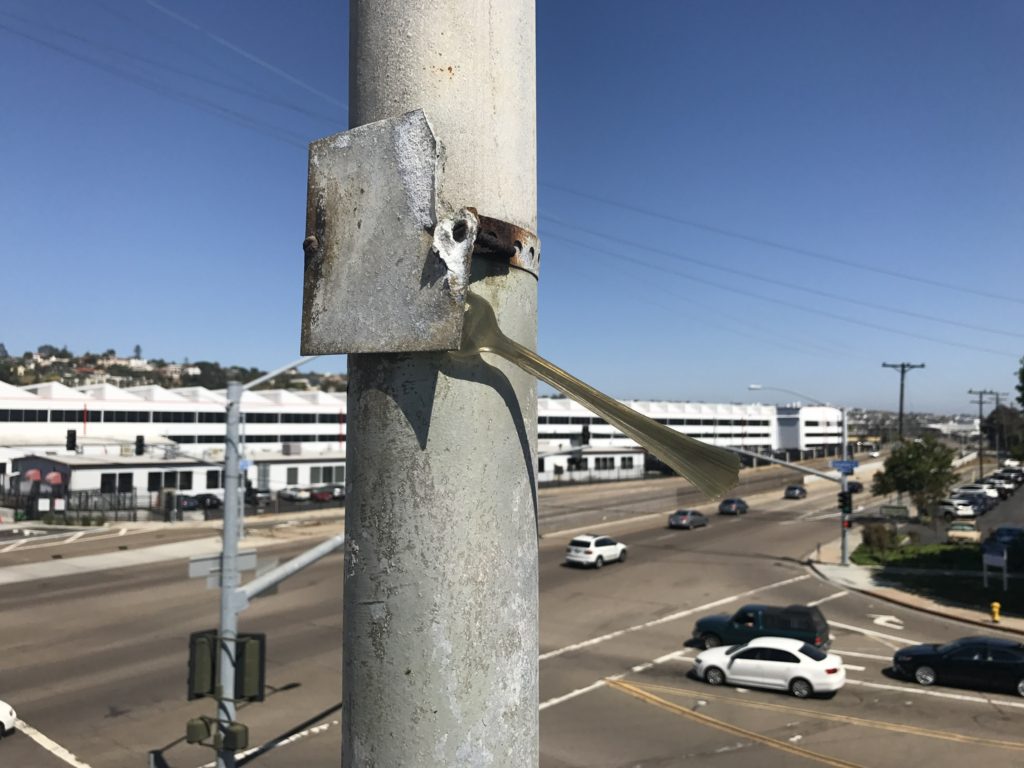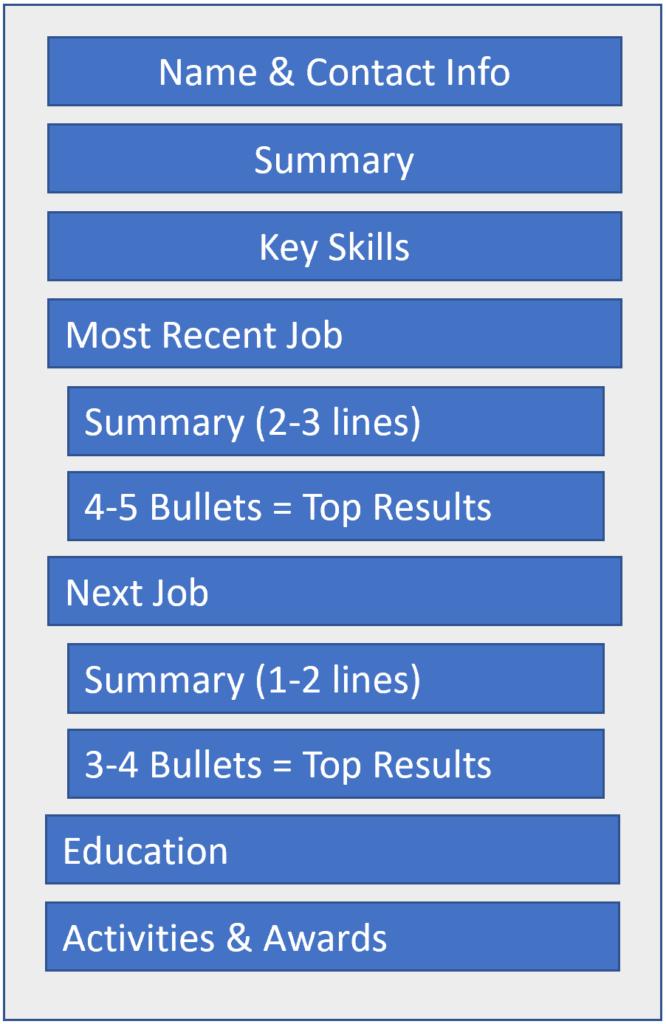
Are you at a fork in the road? Time to polish your resume or maybe time to write your first resume? I have completed over 100 technical interviews, mostly for college and veteran hiring programs. I see a lot of bad resumes and would like to share some tips on resume writing.
In my experience, most candidates are overly confident in their ability to write a resume. Their lack of self-awareness or other factors prevent them from seeking sufficient feedback. The best thing you can do is get a ton of feedback. Ask reviewers not only to look for grammatical errors but also look for readability, understanding, and visual appeal. Ask if the resume generated any positive or negative assumptions.
A resume is not a homework assignment. There is no harm is having someone else do the work. A well written resume increases your prospects and may even increase your income. Paying a professional writer or reviewer is worth the investment. Just know that a professional is limited by the information and stories that you provide. It is important to understand your message before seeking professional help.
Do not underestimate the power of a good resume. Not only does your resume help get you in the door for an interview but the resume is your calling card. It is your first impression for the interviewer(s). It may be the deciding factor between two similar candidates. A good resume sets the tone for the interview by raising the expectation level. Experienced interviews can predict the outcome of an interview with a high degree of accuracy based on the resume alone.
High Level Tips
- One Page Resume – If you can elegantly describe your work experience on one page that is great. Do not limit yourself to a single page at the sacrifice of readability and content. Don’t use unusual margins, small font, or shorthand. One page resumes can also convey inexperience in some cases.
- Two Page Resume – Never go over 2 pages. That says you cannot be concise or you are really old.
- Open with a summary section that outlines your skills, experience, and accomplishments. Avoid talking about what you want. The classic “seeking’ statement is usually meaningless fluff.
- Provide a section outlining the current skills that you want to discuss in an interview. Do not list dated or aspiring skills. Do not list generic skills and talents. List skills that the reader needs to know and skills they could not assume. For example, bilingual, technical specialties, public speaking, etc.
- Describe each position in chronological order.
- Provide a job title that conveys meaning; change your official title if needed.
- List positions by year (no need for anything more specific).
- Describe current positions in present tense and former positions in the past tense.
- Open with 2-3 lines generally describing your key responsibilities. Just the highlights; you likely had many responsibilities but remain focused on the most relevant and transferable tasks.
- Follow each description with 3-4 bullets describing your best accomplishments.
- Most of your bullets need to clearly describe the impact of your accomplishments; preferably in numbers.
- Be selective. If you have a ton of bullets pick the best and ditch the rest. Better to have the reader actually read your highlights rather than skim your full history.
- Break long-held positions up if necessary to better describe long stretches of employment.
- Show progression. Your most recent positions should have more focus. If any section is larger with more bullets it should be your most recent position. Your positions grow in emphasis chronologically. Downplay or carry forward prior accomplishments if needed.
- Wrap up with your education. If you are actively working on degree, license, or certification make sure to list them with an expected completion date (but no more than 1-2 in progress).
- Close with related and transferable volunteer work and personal projects. Also include related and noteworthy awards.
- Now you can actively review for grammar but prioritize readability. Work to remain conversational yet professional. Use the Read Aloud feature in MS Word and listen for confusing statements. Push yourself to make your resume easy to read and understand.
- Follow up with the squint test. View your resume at arm’s length and squint until the words are out of focus. Does the formatting appear consistent and well positioned? You are going for the polished layout of a professional marketing presentation. Each block is consistent in use of space and layout. Section transitions are uniform. Every line is 60-100% full. You have standard margins and a comfortable font size (11-12pt). Whitespace is well managed and nothing feels crunched or forced. Key items are bolded. The second page is 50%-100% full. Converted to PFD if allowed and tested for printing

Mistakes to Avoid
- Do not confuse grammatical correctness for readability.
- Using words that you never use in normal conversation.
- Overlooking the need for visual formatting as described above.
- Talking about what you want rather than what you have to offer.
- Using words that do not belong on a resume because they are too technical, obscure, harsh, ambiguous, or generic.
- Indicators that you are out of touch with current resume etiquette.
- When you are competing with similar candidates; failing to make your resume unique.
- Taking poor advice. This is your resume, gather feedback but go with your gut.
- Not being receptive to advice or improvement; especially if your resume has a low success rate.
- Being creative in your layout or design. Unless you are applying for a creative position; this is no time to test the waters with your new innovative take on resume layout. Do consider a splash of color.
- Using formatting or transitions that can be unappealing like using an underline for emphasis or using URL blue.
- Using words or stories that can create negative impressions or unrealistic expectations. Avoid conveying your age, total year of experience, religious/political beliefs, etc.
- Omitting important accomplishments and skills. I am often surprised how many critical skills come up in an interview that a missing from the resume.
- Listing skills or portraying experience that you are not prepared to back up in the interview.
- Dismissing and omitting transferrable work experience or early career experience as irrelevant. A side business or a long internship for example.
- Including side jobs or pre-professional work experience. Keep your bartending and Uber experiences to yourself.
- Including obscure and unrelated education and awards. I still see high school graduation on resumes (yikes).
- Failing to show progression. You resume is not a series of jobs. Your resume is chronicle of your upwards trajectory.
- Failing to make the transition from telling what you have accomplished to crafting a meaningful story.
- Failing to tell a story that is consistent with your interview story and performance.
You can only do so much with what you have. I have seen some excellent resumes based on very limited career experience. I’m not saying that an excellent resume alone can land your dream job but it is a start.
Let me close by saying that most resumes are mediocre. Excellent resumes are not unattainable. They take hard work and do make a big difference. People get hired despite poor resumes every day. That only means there is a huge opportunity for those with amazing resumes.
One indication of a great resume is when it enhances the interview. Not only can a good resume improve the overall tone of the interview but a good resume contributes to the repetition of an underlying story. By telling the same story in your resume, interview, and follow-up communications you are helping to reinforce your strengths in the minds of the interviewers.
Beyond specific skills and experience, companies are looking for dependable people who are good with customers, deal well with change, are focused learners, good communicators, trustworthy, resilient, who possess high emotional intelligence, and work well independently and as part of a team. Your resume and interview should reflect these skills.